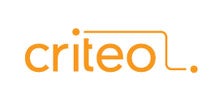 Earlier this week, Criteo announced its new display ad, bidding platform which allows ecommerce display advertisers to bid on a CPC basis by category. Read the release.
Earlier this week, Criteo announced its new display ad, bidding platform which allows ecommerce display advertisers to bid on a CPC basis by category. Read the release.
Criteo CEO JB Rudelle discussed the update to his company’s display advertising platform.
What problem is this new update to the Criteo platform solving for the eCommerce marketer using display?
Today marketers are under more pressure than ever to drive ROI from their portfolio of online marketing tactics. With this, we see the trend in controlling campaign optimization down to the most granular level. Criteo’s new platform, called the Criteo Performance Optimization Platform, includes a self-service CPC bidding by category, which solves the advertisers’ dilemma of traditionally lacking control over their display campaigns and driving phenomenal ROI. Now, e-commerce marketers can choose how much they wish to invest “per click” for every item in their product catalog (very similar to choosing how much you’d like to bid on specific search terms).
The new platform also provides increased performance visibility through an enhanced customized reporting feature. This customized reporting tool provides real-time performance updates, coupled with the self-service bidding platform empowers advertisers to make real-time adjustment to better optimize their campaigns.
How is this different from other solutions in the retargeting marketplace?
The Criteo Performance Optimization Platform is unique in that it is the first to offer complete self-service campaign control to display advertising. In simpler terms, the platform brings the power and flexibility of search to display. Similar to bidding on specific words for search, advertisers are now able to set the optimal CPC bid for each of their products or any set of customized product categories. For example, an advertiser that sells both jewelry and school supplies can set a different CPC per product category based on the impression levels and cost-of-sales goal for that specific category. Although this is a novel concept for display advertising, it is a concept that many are familiar with in SEM, making adoption streamlined and efficient.
Also unique to the Criteo solution, with Acquisition Funnel Management, advertisers can set up separate sub-campaigns based on where each online shopper stands in the buying process. Criteo’s technology can determine a prospect’s propensity to make a purchase – from cold prospects through to frequent buyers. With this information, advertisers can bid accordingly for each category of shopper – thus placing their marketing dollars in the most optimal campaigns.
Is there value in targeting audience rather than products-only for eCommerce? If so, any brief use case you can provide?
The greatest opportunity for e-commerce product companies is the ability to create targeted advertising down to the product level, for costs less than basic, non-personalized campaigns due to the effectiveness of this personalized medium. Going back to the “search” comparison, the reason so many people have integrated that practice into marketing programs is because of the specificity enabled through bidding on exact words they wish to associate with their brand – rather than a very broad and competitive category such as a generic audience.
This same concept relates to Criteo’s personalized retargeting. Not only can retailers now control their bids on the exact products that will be displayed in highly targeted ads to their online customers, but also they only are charged when the customer clicks the ad, in turn bringing them back to the site.
By John Ebbert










